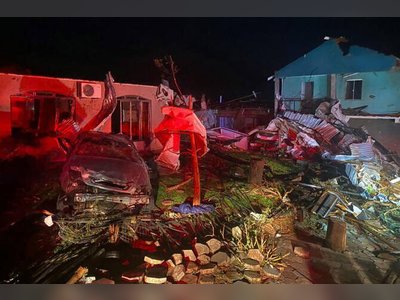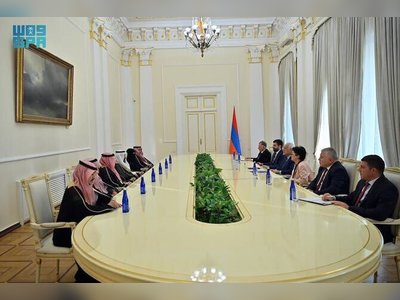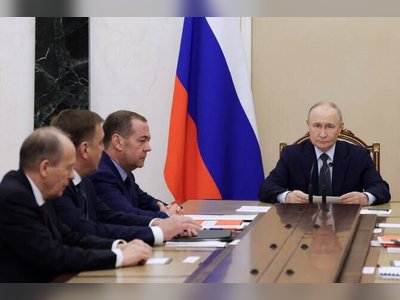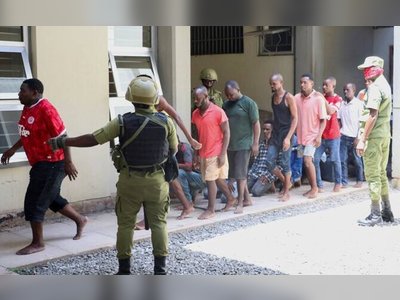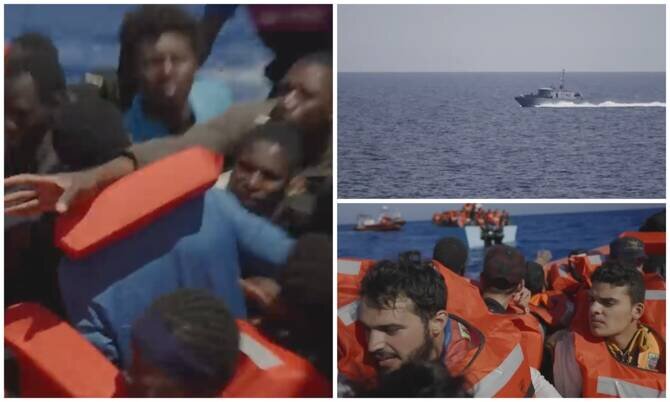
Mediterranean NGOs Refuse Cooperation with Libyan Coast Guard over Allegations of Violence
Thirteen humanitarian organizations stop sharing information with Libya's coast guard due to claims of mistreatment of asylum-seekers.
A coalition of thirteen non-governmental organizations (NGOs) operating rescue missions in the Mediterranean have severed ties with the Libyan coast guard, citing concerns over its alleged violent treatment of asylum-seekers.
These groups accuse the Libyan authorities, who are supported by the EU through funding and training, of engaging in abusive practices against migrants, including detaining them in camps where conditions are reportedly harsh, with allegations of rape, torture, and slavery prevalent.
According to a 2021 UN report, refugees and asylum-seekers in Libya face a "litany of abuses" across the country, suggesting potential violations amounting to crimes against humanity.
Additionally, a recent report by Sea-Watch indicates that the Libyan coast guard has been involved in 54 acts of violence since 2016, including incidents such as ramming vessels and opening fire on rescue ships.
The NGOs, emphasizing their stance that the Libyan coast guard does not constitute a legitimate search-and-rescue authority due to its association with human rights violations, have announced the Justice Fleet initiative.
This initiative aims at documenting cases involving the Libyan coast guard's actions and collecting information on legal repercussions taken by these organizations against such violations.
Ina Friebe of CompassCollective articulated the stance of the 13 NGOs, stating that discontinuing all operational communication with the Libyan Rescue Coordination Center is both a moral imperative and a legal obligation.
This decision comes with potential risks for the NGOs, including fines, detention, and seizure of their vessels; however, they maintain that it is their right and duty to recognize armed militias as such in their operations.
The NGOs' actions are part of a broader struggle against being compelled by European authorities to collaborate with entities suspected of human rights abuses.
This stance reflects the deeper conflict over how to manage migration flows across the Mediterranean, pitting humanitarian values against the policies of European countries aimed at controlling immigration through partnerships with countries like Libya.
These groups accuse the Libyan authorities, who are supported by the EU through funding and training, of engaging in abusive practices against migrants, including detaining them in camps where conditions are reportedly harsh, with allegations of rape, torture, and slavery prevalent.
According to a 2021 UN report, refugees and asylum-seekers in Libya face a "litany of abuses" across the country, suggesting potential violations amounting to crimes against humanity.
Additionally, a recent report by Sea-Watch indicates that the Libyan coast guard has been involved in 54 acts of violence since 2016, including incidents such as ramming vessels and opening fire on rescue ships.
The NGOs, emphasizing their stance that the Libyan coast guard does not constitute a legitimate search-and-rescue authority due to its association with human rights violations, have announced the Justice Fleet initiative.
This initiative aims at documenting cases involving the Libyan coast guard's actions and collecting information on legal repercussions taken by these organizations against such violations.
Ina Friebe of CompassCollective articulated the stance of the 13 NGOs, stating that discontinuing all operational communication with the Libyan Rescue Coordination Center is both a moral imperative and a legal obligation.
This decision comes with potential risks for the NGOs, including fines, detention, and seizure of their vessels; however, they maintain that it is their right and duty to recognize armed militias as such in their operations.
The NGOs' actions are part of a broader struggle against being compelled by European authorities to collaborate with entities suspected of human rights abuses.
This stance reflects the deeper conflict over how to manage migration flows across the Mediterranean, pitting humanitarian values against the policies of European countries aimed at controlling immigration through partnerships with countries like Libya.
